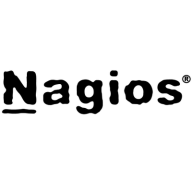

Apica and Nagios Log Server compete in monitoring and log management. While Apica is superior in deployment ease and support, Nagios Log Server has the upper hand in feature set, favored despite higher perceived costs.
Features: Apica offers real-time monitoring capabilities, reliable performance, and efficient issue resolution. Nagios Log Server is noted for its extensive log management, robust integration options, and comprehensive tool suite.
Room for Improvement: Apica could improve customization options, add more intuitive controls, and enhance user interface flexibility. Nagios Log Server needs better scalability, faster processing speed, and improvements to handle large data volumes.
Ease of Deployment and Customer Service: Apica is recognized for straightforward deployment processes and efficient customer service, appreciated for quick issue resolution. Nagios Log Server requires more setup time but is supported by valuable documentation for those with technical expertise.
Pricing and ROI: Apica’s pricing is considered competitive, offering a quicker return on investment due to lower setup costs and operational efficiency. Nagios Log Server, despite a higher initial setup expense, is justified by its robust feature set, perceived long-term ROI, and comprehensive log analysis capabilities.
| Product | Market Share (%) |
|---|---|
| Apica | 0.3% |
| Nagios Log Server | 0.8% |
| Other | 98.9% |


| Company Size | Count |
|---|---|
| Small Business | 4 |
| Midsize Enterprise | 2 |
| Large Enterprise | 17 |
Apica leads in observability cost optimization, empowering IT teams to manage telemetry data economics efficiently. It supports various data types, reducing costs by 40% with flexible deployment options and eliminating tool sprawl through modular solutions.
Apica Ascent optimizes observability costs across metrics, logs, traces, and events and provides adaptability beyond proprietary formats. Its patented InstaStore™ technology ensures maximum storage efficiency and advanced root cause analysis. Organizations leverage Apica for comprehensive control over observability investments, reducing runaway costs. With solutions for mitigating high-cardinality data challenges, Apica supports any data lake preference and offers cloud or on-premises deployments. Its modular solutions eliminate unnecessary tool redundancies, enhancing economic efficiency in telemetry data management.
What features define Apica's capabilities?Apica addresses industry needs in monitoring and testing applications, enhancing user experience across sectors. It is instrumental in synthetic checks, load testing, API monitoring, and validating functionalities for stability in gaming, finance, eCommerce, and banking platforms. Apica's versatility supports both on-premises and cloud environments, ensuring accurate insights into service availability and network performance.
Nagios Enterprises delivers official products, services, and solutions for and around Nagios – the industry standard in enterprise-grade IT infrastructure monitoring. With millions of users worldwide, Nagios is the undisputed champion in the IT monitoring space. Our team of dedicated professionals works to ensure total customer satisfaction with all the services we provide. Our extensive network of partners helps extend Nagios services and solutions to new organizations and markets worldwide to meet a variety of business needs. Nagios Enterprises was founded in 2007 by Ethan Galstad. Ethan created what would later become known as Nagios in 1999, and currently serves as the President of Nagios Enterprises.
We monitor all Log Management reviews to prevent fraudulent reviews and keep review quality high. We do not post reviews by company employees or direct competitors. We validate each review for authenticity via cross-reference with LinkedIn, and personal follow-up with the reviewer when necessary.